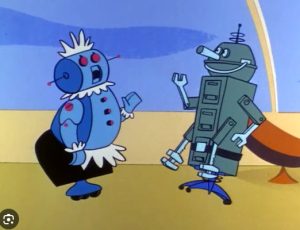Years ago, a busy industry executive asked me to write a magazine column for him as his ghostwriter. We discussed the topic he needed me to write about. He also expressed his point of view on the subject.
I wrote a rough draft, which I submitted to him. Then he sent me changes he wanted incorporated. Once I’d made the changes, he said we were done and thanked (and paid) me. The article appeared in a widely read industry magazine─with his name on the byline.
More recently, I freelanced for a company producing generic articles on a variety of topics ranging from computer hacking to lawn care. Although not an expert on either area, I incorporated personal experiences and information from research to write 700-word pieces that were then sold to the company’s clients for their use. There was no collaboration involved.
Weeks later, my article appeared in The Wall Street Journal verbatim–except for a byline with someone else’s name on it. As I read the piece, I knew by the second sentence it was my story. I was furious. I contacted my handler and expressed my dismay, as it felt as if I’d been plagiarized. She claimed that my contract with them meant their clients could use the writing I produced however they wished. And they did, verbatim.
 Everywhere you look, Artificial Intelligence/AI is in evidence. If you use Google’s assistant, Siri, or Alexa, you’ve used AI. From my understanding with Wikipedia’s definition, Artificial Intelligence uses existing works to assist programs that write and perform for people. Stephen Colbert demonstrated the use of AI on his show when he and a guest developed a short plot and title in less than two minutes with just a few pieces of information.
Everywhere you look, Artificial Intelligence/AI is in evidence. If you use Google’s assistant, Siri, or Alexa, you’ve used AI. From my understanding with Wikipedia’s definition, Artificial Intelligence uses existing works to assist programs that write and perform for people. Stephen Colbert demonstrated the use of AI on his show when he and a guest developed a short plot and title in less than two minutes with just a few pieces of information.
Whose works were used to base the AI’s program results? Programmers don’t ask for permission to use already published works to “feed” the knowledge base for the AI writing.
Plagiarism is rampant, so how long will it take for people to take the easy way out and wind up using another author’s work, even inadvertently via AI?
This is not sour grapes on my part. I’ve studied plagiarism and taught classes in writing that include alerting writers to avoid copying others. I’ve noticed that writers think that anything on the internet is fair game for their use.
Let’s respect original work. At the very least, give credit/attribution to the person who wrote the original work. Recently, I included a quote in the front matter of my book. An author I’ve met received credit for the quote. I contacted the author to get permission to use the quote. She said she hadn’t written the quote. I looked some more, but I could not find another author that I could authenticate. I attributed the quote to “Anonymous.” It took a few days and a little work, but I believe people should give credit where it’s due or try to give credit.
People tend to cut corners. The publishing industry has smaller staffs than in the past. Standards have eased. Years ago, publishers only published a book when it was error free. Today, I regularly see words left out and grammatical errors in some bestselling authors’ works. Our minds fill in the blanks.
Consider me old-fashioned, but I’d like my work to be enjoyed and free from errors. I want my readers to flip pages to see what’s coming next, rather than get hung up on missing words.
I also admit that my work has not been universally perfect. When I was a journalist, I wrote a story about a government worker who has a degree in “public administration.” Somehow, I omitted the “l” and, even with a copy editor, we didn’t catch the error. His co-workers caught the error and razzed the public administrator mercilessly. Every time I saw the person after that, we’d either laugh or I’d apologize or both.
Alphabet soup has us all learning acronyms and shortening everything. We’re in a hurry. My husband insists I call those items we eat vegetables, not “veggies.” But let’s not take shortcuts when it involves original works and plagiarism. Let’s honor the work all of us accomplish and treat each other with respect.
Any comments?
I’d love to hear from you on your view of Artificial Intelligence.
Warmest regards,
Shelley Sommers
Romance Author
www.ShelleySommers.com
shelley@ShelleySommers.com
